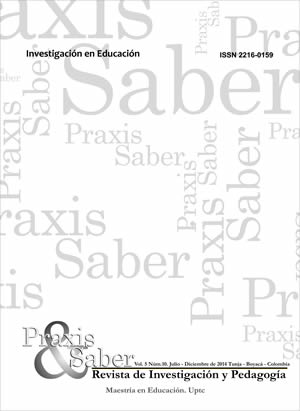The quantitative and qulitative analysis of knowledge production in physical education: the northest brazilian experience

Abstract
The controversy between analytic and interpretative epistemology is presenting into the research about knowledge production and these are expressed in the analysis of methods, which are used in scientific research. The thematic project: KNOWLEDGE PRODUCTION IN PHYSICAL EDUCATION entitled: postgraduate impact south and southeast of Brazil, in the formation and the production of magister and phd who work in high schools in the northeast region. It is financial by Amparo Foundation to the research of Sao Paulo state (Proc. 2012/50019-7) it is about the relation between quantitative and qualitative methods and underlined: 1) The construction of scientific field of physical education has theoretical and methodological basis on natural science (physic, biology, mechanic) and human and social science (pedagogy, sociology, psychology) but they confront ways of knowledge validity. The first look for preserving the objectivity, they use a mathematical and statistic language, the second one charged of subjectivity. They prefer the interpretation and the polysemy languages, 2) the analysis made with the production of 750 surveys which were prepared by teachers and doctors who work in 126 courses of physical education in nine states in the Northest of Brazil. The analysis shows that the epistemological dualism is overcoming by the checking of the object of knowledge phenomena reveal numerous determinations and dimensions among them as quantitative as qualitative which cannot be separate into the process of knowledge. 3) Over the base of this dialectic united of opposed. The search leaded the dilemma between quantitative and qualitative approach, the construction of quantitative and qualitative indication sign in order to characterize the theoretical and methodology trend. The use of Cenciometria tools (dates analysis) in order to identify the evolution of theories, authors, schools of thought, the research webs. The use of epistemological categories let us to understand the science and technology indicators in the context of social development and its historic transformations of Brazilian society.Keywords
analytic epistemology, interpretative epistemology, educative research, quantitative methods, qualitative methods.
References
- Audi, R. (2004). Dicionario AKAL de Filosofía. Madrid: AKAL.
- Bachelard, G. (1989). Epistemología. Barcelona: Anagrama.
- Blanché, R. (1975). A epistemología. Río de Janeiro: Martins Fontes.
- Ferraro, A. R. 'Quantidade e qualidade na pesquisa em educação na perspectiva da dialética marxista'. Pro-posições [23, 1, 67, janeiro-abril 2012, 129-146,]. Campinas.
- Japiassú, N. (1977). Introdução ao pensamento epistemológico. Rio de Janeiro: Francisco Alves.
- Larocca, p.; Rosso, a. J. & Souza, A. P. 'A formulação dos objetivos de pesquisa na pós-graduação em Educação: uma discussão necessária'. Revista Brasileira de Pós-Graduação- R B P G [2, 3, março 2005, 118-133]. Brasília.
- Löwy, M. (1986). Ideologia e ciências sociais. São Paulo: Cortez. Macias‐Chapula, C. A. 'O papel da informetria e da cienciometria e sua perspectiva nacional e internacional'. Ciência da Informação [27, 2, maioagosto 1998, 134‐140]. Brasilia. Marx, K. (1998). O capital. [I, V, I] [16 ed.] Río de Janeiro: Civilização Brasileira. Packer, A. L. et ál. 'SCIELO: uma metodologia para publicação eletrônica'. Ciência da Informação, Brasília, DF. [27, 2, 1998, 109-121] Brasília, pp.
- Paideia (2011). Produção do conhecimento em Educação Física no nordeste do Brasil: análise cienciométrica e epistemológica dos impactos do sistema de pós-graduação na formação de docentes, mestres e doutores e na implementação da pesquisa nas Instituições do Ensino Superior da região nordeste. Projeto Temático, Campinas: FE/Unicamp.
- Pires, A. (2008). 'Sobre algumas questões epistemológicas de uma metodologia geral para as ciências sociais'. [Vários autores] A pesquisa qualitativa: enfoques epistemológicos e metodológicos [43-94]. Petrópolis RJ: Vozes.
- Sánchez Gamboa, S. (1996). Epistemología da pesquisa em educação. Campinas: Práxis
Downloads
Download data is not yet available.